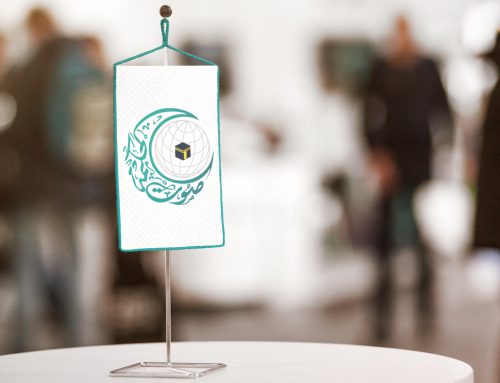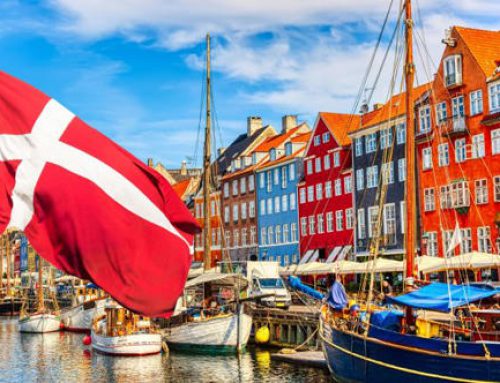The principle of tolerance has been one of the most widely used concepts in the recent decades, given the dominance of universal values and the increasing intolerance in some communities. Although this term is circulated widely, it entails a lot of ambiguity in terms of linguistic significance and philosophical meanings.
Tolerance in the Latin language is derived from the term tolerantia, which means endurance, which means; pressuring the self and tolerating others. The meaning of term in the Arabic language is not different from Latin, where most of the Arabic dictionaries link the concept of tolerance to the concept of leniency, which means giving up some of the right due to a violation by a certain party. In both meanings, be it Latin or Arabic, the meaning of self-sufficiency and pressure is expressed to accept and tolerate others. But does the concept of tolerance in the Quran correspond the linguistic meaning, and what is the difference between tolerance in the Qur’an and tolerance in the Western concept?
There is no doubt that tolerance in the West as a concept and practice became known only in the late times in the history of these societies, especially at the beginning of the Enlightenment, and the increasing spread of the philosophy of uncertainty in the Western mentality, where the concept of tolerance was linked to the concept of truth. For example, the question of who has the truth over the others. As long as giving judgements on tolerance is impossible, and deciding on religious beliefs is not absolute, tolerance becomes a duty. Voltaire, the pioneer of Western tolerance philosophy expresses this concern in his book: “An Essay on Tolerance” by saying, “Tolerance is a corollary of our human being. We are all the product of weakness; we are all fragile and prone to error, so let us forgive each other and tolerate each other’s madness.” Voltaire believes that the limit of intolerance is the acknowledgment of the truth that knows no fault and accepts no mistakes. This acknowledgment of the truth brings tolerance to existence. He summarizes this view by saying: “Error has to do with tolerance, and the truth has to do with intolerance.” This Western sentiment on the concept of tolerance and its beginnings confirms the view of philosopher John Stuart Mill who believes that it is natural that one does not tolerate what one takes seriously. Tolerance is accompanied by suspicion. Tolerance in matters that one is sure about does not exist.
This intriguing concept and the probability of error as a motive for tolerance towards the other is reflected in thought of the German philosopher of rationalism Karl Popper in his book “Looking for a Better World” in which he says, “The existence of error should lead us to admit our mistakes, and ignorance and that we are not infallible.” This emphasizes the need for mutual tolerance among human beings. Popper sums up his opinion on three ethical principles that form the basis of every intellectual debate on the concept of tolerance. These principles are: the principle of inflexibility, the principle of mental debate and the approach to truth, three principles on which the foundation of Tolerance was based on in the Western mind. Thus, the concept of tolerance developed in the context of the weakness of religiosity in Europe before and after the French Revolution. Will Durant mentions this idea in three different places in his book “The Story of Civilization,” where he says: “Intolerance is born with the emergence of certainty.” Stuart Mill also noted this observation: “Tolerance prevails only where religious indifference prevails,” while British philosopher Chesterton expresses this concept by saying, “Tolerance is the virtue of a man without certainty.”
Based on the precisely mentioned statements and facts, the concept of tolerance in the Western culture is mainly linked to the uncertainty in the prevailing religious beliefs, and at the same time assumingly believing these prevailing religious beliefs. Any tolerant philosopher is uncomfortable with religion, and there is a situation of systematic doubt in his foundation, or this philosopher is an atheist in a state of denial, because religion means certainty and certainty contradicts with tolerance.
This fact was noticed by the brilliant British critic and liberator Thomas Paine, who transcended this problem and went beyond the linguistic meaning of the term and put forward a deeper meaning for the concept of tolerance through his comic treatise on the concept prevailing in the West. Thomas Paine said that tolerance is mere masking of intolerance and it is not the opposite of the lack of tolerance. They are two faces of the same coin, because one claims to have the right to prevent freedom of belief, the right to prevent others from expressing themselves under the claim of intolerance, and the other to claim to grant the right and freedom of belief, both of which are tyranny. Both are forms of oppression: a person who believes that he has the right to give is the same as a person who believes that he has the right to prevent. At the same time, people who believe that they are compromising by accepting and tolerating their opponents are in fact fanatics who see the right to exist confined to them but gives up this right eradicate their opponents.
German philosopher and writer Goethe mentioned this deep understanding, by emphasizing that tolerance literally means endurance with difficulty, stating that it was a concept that we had to accept, but temporarily, until we reach the ultimate meaning of tolerance. He believes that it entails an implicit insult, as to say, “I will recognize you and accept you even though I do not love you.” The Frankfurt school, especially its great philosopher Herbert Marcuse, supported this notion that tolerance in the Western philosophy and culture is a form of hidden repression.
If this is the concept of tolerance and its foundation in Western culture, let us look at the concept of tolerance and its foundations from the point of view of Islam to compare the two concepts. Islam is founded based on the concept of tolerance which had to do with the argument of justice not truth, thus differing from the western culture which prefers truth. In Islam, one does justice when recognizing people who are different from me. It is justice not to impose my belief on them. It is just to allow any person to believe in whatever without enforcement or terrorism, and this is different from the argument of truth, which says that I should be tolerant towards others because I am not sure if they are right or wrong, thus recognizing their right to exist as a form of concession by me.
Throughout the Qur’an, there is no single verse that justifies tolerance on the basis of doubt in faith. On the contrary, the Holy Qur’an is filled with verses that prove certainty such as: “The truth has certainly come to you from your Lord, so never be among the doubters.” (Yunus: 94), and “This is the Book about which there is no doubt, a guidance for those conscious of Allah.” (Al-Baqarah: 2). The Holy Quran is filled with orders of tolerance and acceptance of the other without any embarrassment or pressure. Allah Almighty says: “And had your Lord willed, those on earth would have believed – all of them entirely. Then, [O Muhammad], would you compel the people in order that they become believers?” (Yunus: 99). He also says: “Should we force it upon you while you are averse to it?” He also says: “So remind, [O Muhammad]; you are only a reminder. You are not over them a controller.” (Al-Ghashiya: 21, 22).
Although the existence of certainty and its existence in the Quran and Sunnah, tolerance is enjoined and it is even a must for each Muslim and it serves as a law of justice by God who created different people for a wisdom he wanted. The concept of tolerance in Quran transcends the limits of recognition and acceptance of the other to the degree of providing abundance and comfort for others who are different. Allah says: “Allah does not forbid you from those who do not fight you because of religion and do not expel you from your homes – from being righteous toward them and acting justly toward them. Indeed, Allah loves those who act justly,” (Al-Mumtahana: 8).
The Qur’anic concept transcended this concept to devote the belief in the legitimacy of difference to say that accepting and believing in difference and diversity is believing in the divine wisdom which created difference and diversity: “And if your Lord had willed, He could have made mankind one community; but they will not cease to differ. Except whom your Lord has given mercy, and for that He created them. But the word of your Lord is to be fulfilled that, I will surely fill Hell with jinn and men all together.” (Hod: 118-119). According to the verse, Allah’s intention is to create people different. Ibn Abbas, Hassan, Ata, Al-Amash and Imam Malik said in the interpretation of this verse “and for that He created them: the difference means to create them as believers and non-believers.” Dozens of verses in the Holy Quran confirms this meaning. “Had Allah willed, He would have made you one nation [united in religion], but [He intended] to test you in what He has given you; so race to [all that is] good.” (Al-Ma’idah: 48). The Quran in other verses talks about the difference among people and the prophets, as an indication that humans are different, and that being a fixed divine wisdom.
If we move from the Quran to the Prophet’s biography, its words and practice strengthens this concept, otherwise no non-believer nor a Jew would not remain in the Madina after the arrival of the Prophet. The Islamic jurisprudence in its early times reflected this Quranic philosophy of tolerance. In the doctrine of Malik, Al-Awza’i and Al-Thawri, Ibn Taymiyyah and Ibn al-Qayyim, they agreed that it is obligatory to provide protection for non-believers or those who have a different religion, such as the recognition of their right to exist, and their right to maintain their beliefs and religions despite being different from its teachings and philosophy. In a remarkable gesture, Imam al-Shafei ruled that it is not allowed in Islam for the Muslim husband to preach his Christian wife to convert to Islam even by hint, fearing that she will be forced to obey his authority and enter Islam for the fear of divorce. These religious decrees in our heritage, reflect the Qur’anic spirit and its philosophy of tolerance.
If this is the Quranic and prophetic concept of tolerance, is the case of Muslims and their convictions today compatible with this vision? Of course, all Muslims have no problem with tolerance. The proof is the survival of non-Muslim minorities in the Muslim societies for hundreds of years, but the problem lies in the extremist groups and their discourse, whose understanding of tolerance does not conform to the Islamic concept of tolerance, based on justice. It is consistent with the Western concept based on truth in the exclusion sense, ie, the absence of tolerance in the case of certainty, where false certainty and absolute and final judgements and radical discourse give no space to accept others who are different, despite the fact God who created them and gave them the freedom to believe in him or not. This is the false feeling of being in God’s position, and claiming to represent God, which radicals from all religions master more than anyone else.
*Dr.Tarik Ladjal is Professor of History at Effat University in Jeddah, Saudi Arabia





